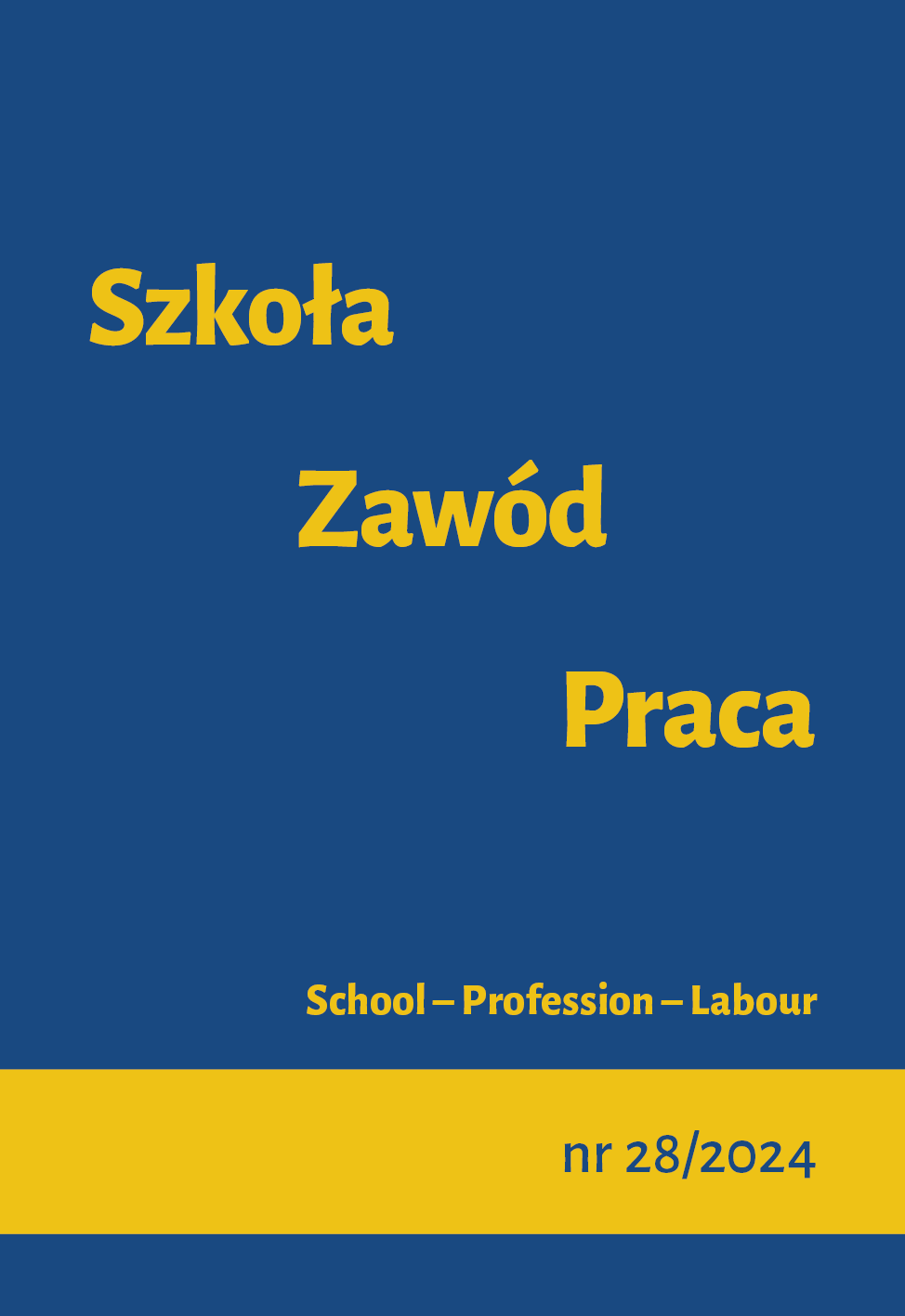Integration of artificial intelligence in family life: perspectives on the use of AI technology for personal and professional development
DOI:
https://doi.org/10.34767/SZP.2024.02.04Keywords:
Artificial Intelligence, Professional Development, Family, AIAbstract
The article analyses the prospects of using artificial intelligence (AI) technology in family life, with a particular focus on the personal and professional development of individual family members. It focuses on the benefits derived from using AI in family education, home management, health protection, and career development. It highlights the role of AI in personalizing the learning process and increasing the efficiency of managing household duties. The article also addresses health issues related to the adoption of AI in a family context, as well as ethical and social challenges such as privacy protection and the impact on family relationship dynamics.
References
Aggarwal, D. Exploring the scope of Artificial Intelligence (AI) for lifelong education through personalised and adaptive learning. Journal of Artificial Intelligence, Machine Learning and Neural Network, 4(1) (2023).
Alowais, S.A., Alghamdi, S.S., Alsuhebany, N., Alqahtani, T., Alshaya, A.I., Almohareb, S.N., Aldairem, A., Alrashed, M., Bin Saleh, K., Badreldin, H.A., Al Yami, M.S., Al Harbi S., Albekairy A.M. Revolutionizing healthcare: the role of artificial intelligence in clinical practice. BMC Medical Education, 23(689) (2023).
Barrett, M., Boyne, J., Brandts, J., Brunner-La Rocca, H.P., Maesschalck de L., Wit de, K., Dixon, L., Eurlings, C., Fitzsimons, D., Golubnitschaja, O., Hageman, A., Heemskerk, F., Hintzen, A., Helms, T.M., Hill, L., Hoedemakers, T., Marx, N., McDonald, K., Mertens, M., Müller-Wieland, D., Palant, A., Piesk, J., Pomazanskyi, A., Ramaekers, J., Ruff, P., Schütt, K., Shekhawat, Y., Ski, C. F., Thompson, D. R., Tsirkin, A., van der Mierden, K., Watson, C., Zippel-Schultz, B. Artificial intelligence supported patient self-care in chronic heart failure: a paradigm shift from reactive to predictive, preventive and personalised care. EPMA Journal, 10 (2019).
Behera, A. Use of artificial intelligence for management and identification of complications in diabetes. Clinical Diabetology, 10(2) (2021).
Betaubun, M., Rokhmah, D.E.L., Budiasto, J. Personalized pathways to proficiency: exploring the synergy of adaptive learning and Artificial Intelligence in english language learning. Technium: Romanian Journal of Applied Sciences and Technology, 17 (2023).
Caspari-Sadeghi, S. Artificial Intelligence in technology-enhanced assessment: a survey of machine learning. Journal of Educational Technology Systems, 51(3) (2023)
Demartini, C.G., Sciascia, L., Bosso, A., Manuri, F. Artificial Intelligence bringing improvements to adaptive learning in education: a case study. Sustainability, 16(3) (2024).
Ganczar, M. Wykorzystanie sztucznej inteligencji w ochronie środowiska. Gdańskie Studia Prawnicze, 4(61) (2023).
Gil de Zúñiga, H., Goyanes, M., Durotoye, T. A scholarly definition of Artificial Intelligence (AI): advancing ai as a conceptual framework in communication research. Political Communication, 41(2) (2023).
Gupta, S., Dharamshi, R.R., Kakde, V. An impactful and revolutionized educational ecosystem using generative AI to assist and assess the teaching and learning benefits, fostering the post-pandemic requirements. Second International Conference on Emerging Trends in Information Technology and Engineering (ICETITE), 2 (2024).
Horgan, D., Romão, M., Morré, S.A., Kalra, D. Artificial Intelligence: power for civilization – and for better healthcare. Public Health Genomics, 22 (2019).
Juszka, K., Dziedzic, K. Kontrowersyjne nowe technologie w kryminalistyce. Studia Prawnoustrojowe, 55 (2022).
Katsarou, E., Wild, F., Sougari, A.M., Chatzipanagiotou, P. A systematic review of voice--based intelligent virtual agents in EFL education. International Journal of Emerging Technologies in Learning, 18(10) (2023).
Kaźmierczyk, P., Kupis, M., Maj, M. (2022). White paper on AI in clinical practice. Using AI when providing health care services. Warszawa: wZdrowiu.pl.
Koziej, S. Możliwości wykorzystania sztucznej inteligencji do wspierania edukacji inkluzyjnej. Student Niepełnosprawny. Szkice i Rozprawy, 23(16) (2023).
Magno, M., Polonelli, T., Benini, L., Popovici, E. A low cost, highly scalable wireless sensor network solution to achieve smart LED light control for green buildings. IEEE Sensors Journal, 15(5) (2015).
Martsenko, N. Influence of artificial intelligence on the legal system. Studia Prawnoustrojowe, 54 (2021).
Mote, A.P. Role of AI in personalized education. International Journal of Advanced Research in Science, Communication and Technology, 4(4) (2024).
Nyathani, R. AI in performance management: redefining performance appraisals in the digital age. Journal of Artificial Intelligence and Cloud Computing, 2(4) (2023).
Rajaraman, M., Arun, A., Kodieswaran, A., Kumanan, K., Prem, M. Pathfinder – career guidance using Artificial Intelligence. International Journal of Advanced Research in Science, Communication and Technology, 4(6) (2024).
Wang, F., Preininger A. AI in health: state of the art, challenges, and future directions. Yearbook of Medical Informatics, 28 (2019)


